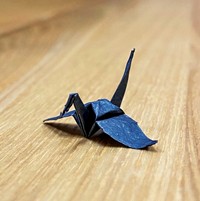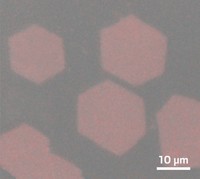Advertisement
Grab your lab coat. Let's get started
Welcome!
Welcome!
Create an account below to get 6 C&EN articles per month, receive newsletters and more - all free.
It seems this is your first time logging in online. Please enter the following information to continue.
As an ACS member you automatically get access to this site. All we need is few more details to create your reading experience.
Not you? Sign in with a different account.
Not you? Sign in with a different account.
ERROR 1
ERROR 1
ERROR 2
ERROR 2
ERROR 2
ERROR 2
ERROR 2
Password and Confirm password must match.
If you have an ACS member number, please enter it here so we can link this account to your membership. (optional)
ERROR 2
ACS values your privacy. By submitting your information, you are gaining access to C&EN and subscribing to our weekly newsletter. We use the information you provide to make your reading experience better, and we will never sell your data to third party members.
Sustainability
Making electronics from mycelium
Fungal skin offers a biodegradable and flexible alternative to traditional substrates
by Bethany Halford
November 17, 2022
| A version of this story appeared in
Volume 100, Issue 41

A skin fashioned from fungal mycelium—the network of filaments that absorb organic matter and nutrients to nourish mushrooms—can be used as a substrate for electronic devices. The discovery offers an environmentally friendly alternative to devices with tough-to-recycle polymer-based substrates.
Martin Kaltenbrunner and colleagues at Johannes Kepler University developed a way to grow the mycelium skin. They then used common electronics-processing techniques, including physical vapor deposition and laser patterning, to turn the mycelium skins into electronic devices (Sci. Adv. 2022, DOI: 10.1126/sciadv.add7118).
In addition to being biodegradable, the MycelioTronics, as the group has named them, are flexible and capable of bending 2,000 times with little loss of performance. The researchers also used the mycelium skins to make batteries that powered a humidity and proximity sensor.
Developing biodegradable electronics will help cut down on electronic waste, says Prashant Sonar, an expert in electronics at Queensland University of Technology. “Such innovative, intelligent materials and devices will reduce our current environmental impact,” he says in an email.
Kaltenbrunner says his team is working on a process to make the mycelium skin in a way that is amenable to industrial scale-up.





Join the conversation
Contact the reporter
Submit a Letter to the Editor for publication
Engage with us on Twitter